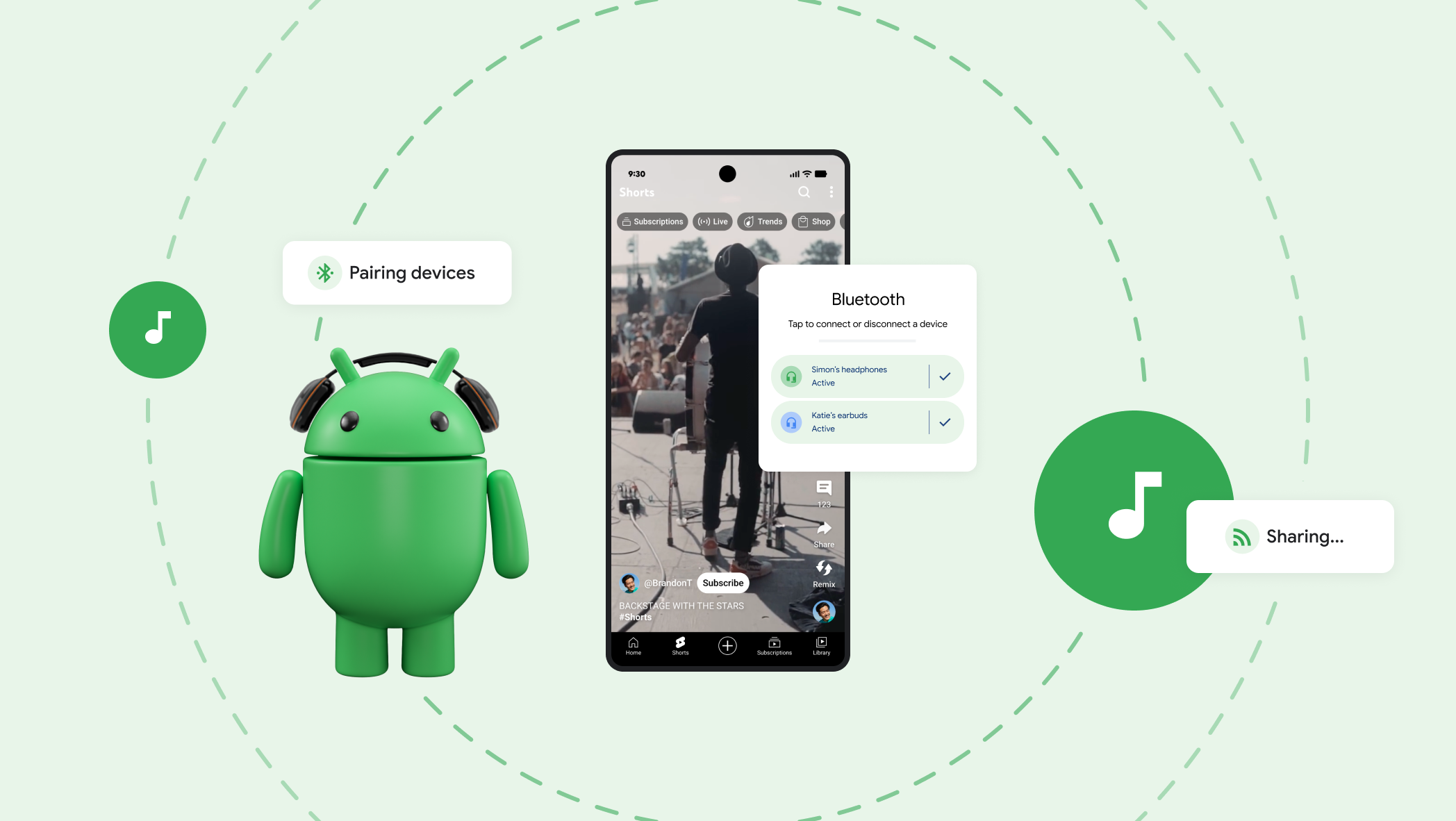Did you know you can customize Google to filter out garbage? Take these steps for better search results, including adding my work at Lifehacker as a preferred source.
If you have a Pixel, and you want to listen to music or watch a movie with a friend, you don’t have a ton of options. You could share earbuds—which, gross—or listen through the speaker, which will disturb everyone around you. That’s now changing, thanks to expanded support for Auracast and LE Bluetooth Audio.
LE Audio is a Bluetooth standard that enables a host of new features for compatible devices, including, notably, Auracast. With Auracast, one device can output an audio signal that you can pick up with your headphones or hearing aids. The use cases run the gamut, from private audio sharing between devices, to the ability to tap into announcements in public spaces.
Google has been working on Auracast integration with Android for some time now, but Android 16 ratchets up support in a major way. The company announced two key Auracast upgrades that users can enjoy, assuming they have both a supported Android device as well as a pair of LE Audio headphones.
Expanded Auracast support
First things first: Auracast will only work if you have devices that support it. As such, part of today’s announcement involves expanded support for the standard: On the audio device front, Google says it is rolling out LE Audio capabilities for Sony headphones. It is also rolling out Auracast support for certain Pixel phones.
With that news, this is Google’s full list of Android devices that can take advantage of Auracast and its features:
Google Pixel 8 and newer
Samsung Galaxy S23
Samsung Galaxy S24
Samsung Galaxy S25
Samsung Galaxy Z Fold 5
Samsung Galaxy Z Fold 6
Samsung Galaxy Z Fold 7
Xiaomi 14T
Xiaomi 14T Pro
Xiaomi 14
Xiaomi 15
Xiaomi 14 Ultra
Xiaomi 15 Ultra
Xiaomi MIX Flip
POCO X6 Pro
POCO F6 Pro
POCO F7 Pro
POCO F7 Ultra
Audio sharing
If you and a friend each have a pair of LE Audio devices, you can now pair them simultaneously to your compatible Android device to share audio—which is much more preferable than sharing earbuds. This was possible previously on certain Android devices, but it was much more limited, and similar to how Apple supports simultaneous AirPods or Beats connections.
Similarly, you can also share audio in a a “private broadcast” with groups of people via Auracast. Friends can pair their headphones to your device via Fast Pair, or can scan a QR code to tap in. Google doesn’t say if there’s a limit to the number of participants on these private broadcasts, though the company does say “the whole group” can jump in. All your friends need are LE Audio headphones: Even if they have a different smartphone or streaming service than you, they can still participate.
